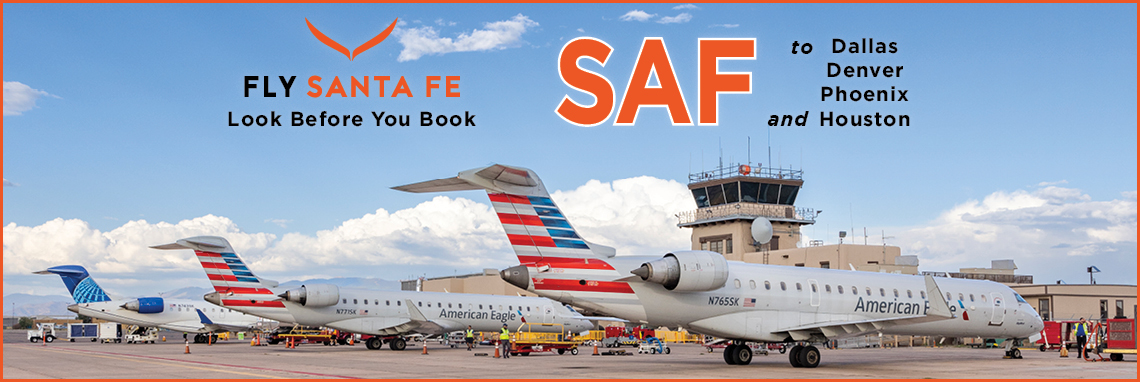ONE SURE INDICATION THAT MACGYVER has become part of the vernacular is that it used as a verb on Yellowstone. A hitman was going to “MacGuber” a bad guy; it wasn’t clear what that was or how he was going to do it, but he was goin’ to get it done.
Lee came up with the idea of MacGyver, participated in its development through the dizzying world of Hollywood. One fine day, he found out he owned the franchise. He is currently producing MacGyver, The Musical.
Lee has a kinetic presence when he enters the room. His voice seems to permeate; his stories, which have a vaudeville quality, can often be side-slappingly funny. He has a way of putting his arm around you when he likes what you have said. As if you have improbably made him proud.
He is a man who is proud of himself. You might call his confidence his very full understanding of what he has done, what it means, and how unusual it is: the bemused Stewart of his own creation.
MacGyver is an incarnation of self-reliance and American can-do spirit. “Don’t surrender to that sea of trouble,” he tells us. “With unconventional thinking and ingenuity, you can solve the issue at hand.”
Make something out of nothing with that, and you will carry the day.
Part 1: St. John’s, Epiphanies, Paradoxes
What was the impact of going to St. John’s?
It’s an approach to education which has to do with learning how to read, learning how to speak, learning how to write, learning how to listen (which is really hard), and learning how to think for yourself. Most education, even most higher education, goes like this: we stuff you full of information, and we ask you to regurgitate it. If we’re convinced you’ve done this well enough, we give you some kind of grade, at which point you can promptly forget the information.
Education is not about information. It’s about the skills of how you learn something. With Kant, you can read four pages before you get to a verb. You think, what is this guy talking about? But eventually, if you pound your head against these books long enough, you begin to make some kind of sense out of them, particularly when you sit in a room with other people who are doing the exact same thing. A conversation begins. And that conversation is really the entire purpose of the St. John’s program. It turns out no matter what the subject matter is, whether it’s language, math, science, or philosophy; it’s all one conversation.
One of the aha moments I had at St. John’s, which has informed my entire and creative process, was that we tend as human beings to want coherency and consistency. But paradox is really a better descriptor of reality. A paradox is simply two things which appear to be opposite, both of which are true. If you look at a great poem, a great play, a great movie, or a great book, there comes that moment where the story turns or where the character turns. A part of you goes, I never saw that coming, and another part of you says, It couldn’t have been any other way.
I’ve used paradox as a great guidepost in my life and my work.
Why St. John’s? You could have gotten into a lot of places.
I’ll tell you a story. When I was five years old, I had what can only be described as an epiphany. I remember distinctly: my brother and I used to walk to school together along this really busy boulevard. I’m watching cars whizz by and thinking, Where are these people going in such a hurry? I thought they must be going to work. And then I thought, Why? Well, they must be going to earn money. Then I thought, Why do they want to earn money? Well, it must be because that way they can buy cars and houses and other stuff. And then I thought, Why do they need cars and houses? I thought, Well, I guess that stuff makes them feel good. But then I thought, The cars and the houses are inanimate objects, they have no feeling. So, the feelings must somehow already be inside you. They don’t come from a car or house. And then I thought, If the feelings are already inside you, why don’t you just give yourself those feelings and not worry about the cars and the houses or anything else? At five years old, I figured out that everything that you really want must, in some way, be inside you.
You recognize patterns and see opportunities because of what the great thinkers had to say?
Yeah, looking at the underlying cultural basis of a story, I go back to the myths.
Greek, Roman, Hindu – they echo through all our stories. Ask Joseph Campbell – The Hero with a Thousand Faces. The development of mankind is built around stories. Human experience is ultimately understood in a story. Homer, for instance, would go to somebody’s house for a couple of weeks. Every night at dinner, he would sing another chapter of the story – it was a TV series!
Part 2: Guns, MacGyver, Odysseus
How did you create the MacGyver TV character?
I was told the network had this great concept and they wanted me to write it.
I agreed. But then I heard the concept. They kept saying, It’s never been done before. I found myself in the uncomfortable position of having to say, You know, there’s a reason it’s never been done before. It’s not going to work.
As a TV series, the idea was a one-shot thing. Then I was told, “OK if this idea doesn’t work – and we agree with you that it might not work – what are you going to do instead?” That was followed by many failures in trying to come up with something that would satisfy them.
So I summoned all my writer friends and said, “We’ve got to come up with something to get me out of this.” And, just like that, we came up with the idea of a character who makes something out of nothing. I thought, That’s it! That’s exactly what this character is. We’ve took nothing and turned it into something.
Next I thought, what if we took his gun away? Every other action-adventure hero on the planet has a gun. If we take the gun away, we have to come up other ways to solve problems. That became the hook.
That was the birth of MacGyver. It turned into a verb in the dictionary and a global meme. I really have to give credit to Richard Dean Anderson, the writers, the actors, and the directors. Maybe I birthed it, but I didn’t make MacGyver this thing, the world made MacGyver this thing.
How did you end up getting control of the MacGyver brand?
Plain luck.
Every three years, the Writers Guild, Producers Guild, Directors Guild, and Actors Guild reach revised agreements with all the producers. As a part of that agreement, the guild negotiates payments for all permutations of whatever might happen with a TV show or a movie. I wrote the pilot for MacGyver, then it ran for seven seasons. Then it was canceled, as all TV shows are (except Saturday Night Live).
Then I read that they were going to make some MacGyver TV movies. I innocently called up the guild and said, “Well, you have the schedule of my payments for these new movies; I created this show.” A couple of days later, they called me back and said, “You’re not entitled to something.” I said, “How is that possible?” And they said, “Because you’re entitled to everything.” Then they said, “We have no paperwork that shows they ever negotiated with you for any on-going rights, so they all reverted to you.” Here was this curious thing that had turned to this global phenomenon, and somehow I end up owning it.
The MacGyver insight — “I don’t need a gun, I have the tools I have within myself” — is the same insight you had when you were five.
The answers are inside you. It’s in The Iliad and The Odyssey. In The Iliad, it’s about force. Achilles is the great warrior, but he has a heel, right? He has a vulnerability, as do all great ones. In The Odyssey, we have the wily, clever Odysseus. Odysseus doesn’t win by force. He wins by his cleverness, like MacGyver. It’s not might makes right, it’s bright makes right.
There’s a MacGyver in everyone. And anyone can be MacGyver. That’s it. If you want to, then you can; if you think you can, you can.
Part 3: Santa Fe, Capitalism, and How to Change the World
How did you end up here?
Curiously, my body got me to Santa Fe. I didn’t go to the St. John’s campus here. I went to the one in Annapolis, Maryland. And when I was successful in Hollywood, they invited me to be on the board, primarily because they wanted me to give money to the school. So I started coming to Santa Fe for board meetings. I noticed that when I would fly into Albuquerque from LA, by the time I hit the outskirts of Albuquerque, my body would just go aaaah. I would just feel this enormous sense of kind of release. I honestly don’t know or can’t adequately articulate what it is. But I would say my body’s experience of that release – or that recognition that there was something here that felt right – spoke to me. I think the people here recognize that and share that on some level. But I cannot honestly tell you what that is. And in some ways, I like that.
It’s a delicious mystery. And part of the beauty of it is watching that mystery unfold. And maybe 10 years from now – or, if I make it, 20 years from now – I’ll have an answer to that question. But right now, I’m content to just live the mystery.
How do you reconcile all the things you’ve been describing and what’s going on in the world?
We have to think these grim things, including this recent pandemic, are wake-up calls. And it’s like, we now have a choice. What kind of world do we want? We all thought the world was based on certain principles; we thought capitalism was sort of the watchword of development. And I’m not knocking capitalism over socialism, but at a certain point, you think What kind of world do we want? And if it’s all about me, where does the community come into play?
Santa Fe is a remote place, set in a harsh environment. You get stuck on the highway or on a trail for too long, you’re in trouble. If somebody doesn’t come along and help you, bad things can happen. There is a sense here that we need each other if we’re going to survive.
As a species, are we going to MacGyver it out? Are we going to use the tools within us?
We have the capability to do that. We made this mess, and we can clean it up.
One of the cool things about Santa Fe is these cultures that coexist – the indigenous culture, 500 years of the Spanish culture, and now about a century of the Anglo-European culture. Is it perfect? No. But we have more or less found a way to coexist. And that is a model for how we can move this little bird out into the rest of the world. You know, there are worse things to strive for.
Learn more at macgyver.com
Photo Mary Moon



